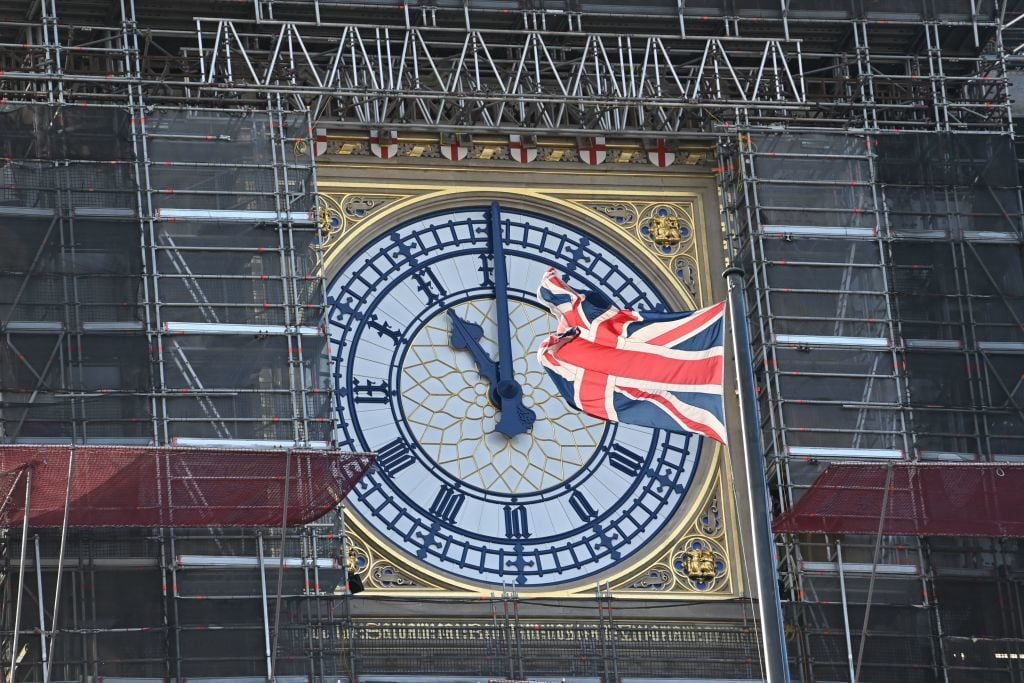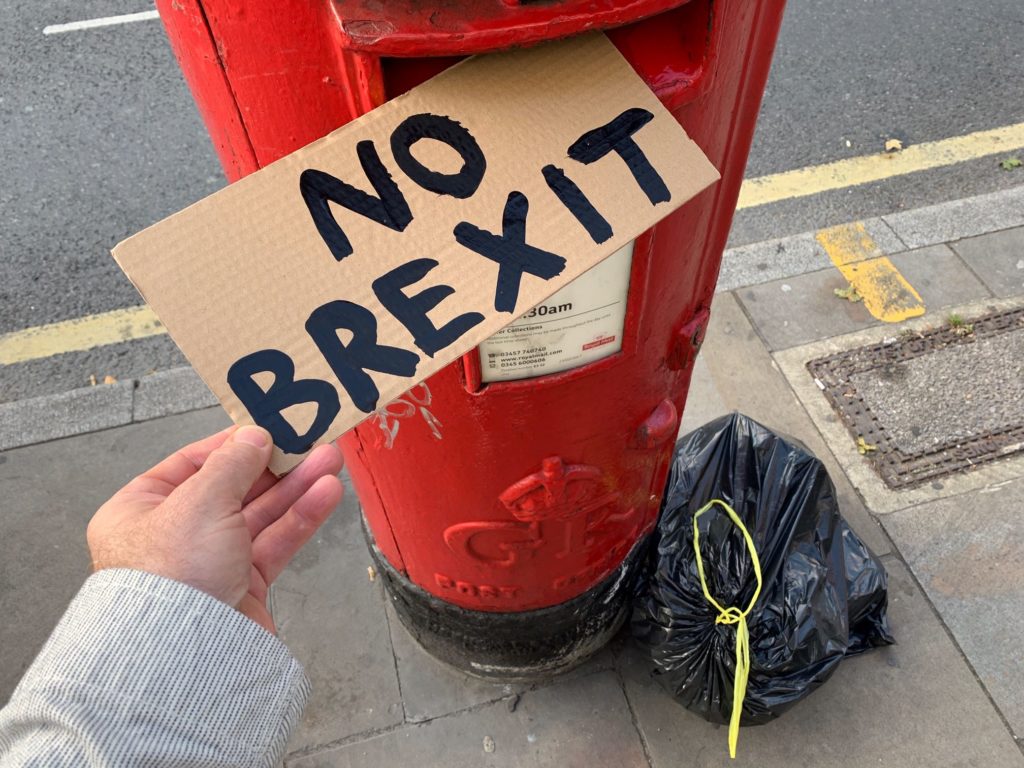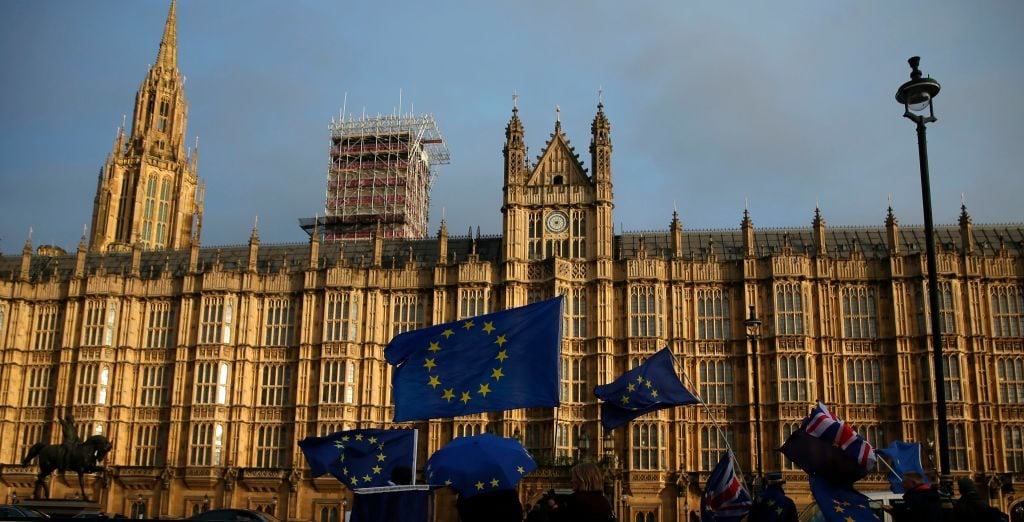Market
Boris Johnson’s Brexit Delivery Has Calmed Financial Markets in the UK. But the Art World Is Still on Edge
The UK officially leaves Europe on January 31, but the full implications of Brexit remain to be seen.

The UK officially leaves Europe on January 31, but the full implications of Brexit remain to be seen.

Javier Pes &
Naomi Rea

After two missed deadlines and a landslide victory for UK Prime Minister Boris Johnson’s Conservative Party, the UK formally leaves the European Union on Friday, January 31. Whether you’re an artist, dealer, collector, or museum director, if you are based in Britain or do business there, you will be affected.
Precisely how remains to be seen.
For the next 11 months, business relations between the UK and European Union will remain as before, as a grace period sets in while politicians hammer out trade agreements. In political jargon, this is the transition, or implementation, phase.
Fears of a no-deal exit from the EU—and the bureaucratic and logistical headaches that would result—have receded for the time being, but have not gone away entirely. If trade talks get bogged down—and few in Brussels think that anything but an interim deal is possible by Christmas—Johnson’s default mode is Brexit brinkmanship.
For now, many questions remain, and among the most common that collectors are asking Freya Stewart, CEO of art lending at the Fine Art Group, are: “Can I still move my art? What paperwork will be required? And might I be exposed to additional taxes or duties if I want to move art from the UK to Europe after the end of 2020?”
Stewart points out that there is currently no government information on what might happen after the transition period ends in December 2020. So for now, the new date on everyone’s mind is January 1, 2021.
“The implications of possible changes to tax, import, and export requirements are well documented and could be negative or positive for the UK market, depending on which way government decisions go,” the consultant Lucy Sollitt tells Artnet News.
She adds that Brexit may also inaugurate changes to intellectual property, copyright, and artist resale rights (royalties paid to artists when their work is resold). Her best advice? “One thing everyone in the art market can do is fight for a cultural voice in the trade negotiations.”
Sollitt suggests that artists consider, for example, advocating for resale rights to continue after Brexit by joining campaigns organized by bodies such as the Design and Artists Copyright Society.

The artist Peter Liversidge’s No-Brexit mail art series to the Prime Minister will continue. Courtesy of the artist.
Brexit also will radically reshape the status of British citizens living in Europe, and European nationals living in the UK.
All EU citizens already living in Britain will have to register under the British government’s EU Settlement Scheme before December 31, 2020.
Museums, galleries, and auction houses—many of which employ EU nationals—are being advised to inform their employees to register with the program. For London’s big museums, which employ or sub-contract cleaning and catering staff, many of whom are European, the government’s pledge to reduce the number of so-called “low-skilled” migrants may make posts hard to fill.
If you are an EU citizen who wants to move to the UK after January 31, you will have to apply for European Temporary Leave to Remain status. But whatever points-based immigration system the UK government introduces will likely make it difficult for travelers to remain. EU citizens just visiting the UK will be able to enter the country as they can now, and stay for up to three months.
Any UK citizens hoping to travel abroad will need to apply for visa waivers to enter the EU. Travelers’ visas will also need to be valid for at least six months.

Anti-Brexit demonstrators wave Union and EU flag outside the Houses of Parliament in central London. Photo: Daniel Leal Olivas/ Getty Images.
As the negotiations are hammered out, many in the art world hope that pragmatism and close relations with the EU will prevail.
“There are a lot of technical issues, but they are technical,” says leading art dealer Thaddaeus Ropac. “I am positive. I think there is an interest on both sides to find practical and pragmatic solutions.” And in at least some sense, Johnson’s election victory ended some of the uncertainty that surrounded Brexit, leading to what Stewart calls a “reassuring effect” on financial and property markets.
“When there is positive movement in these markets, confidence tends to filter down, leading to more transactions in other markets, including the art market,” she says.
The February auctions in London will be the first test of whether this will result in a bonanza of A-grade sales. The big auction houses hope that any consigners who were reluctant in 2019 will return in 2020. But they won’t be standing down their Brexit task forces in London any time soon.
A spokesperson for Christie’s confirms that its Brexit committee will be convening regularly. The company will make “any necessary adjustments to logistics following the outcome of relevant negotiations,” Christie’s said in a statement.
Brexit has arguably benefitted Paris. David Zwirner now has a space in the French capital, and Artnet News understands Pace is considering a similar expansion, as is Hasuer & Wirth.
But other dealers says remaining in London now is more important than ever. The South African Goodman Gallery opened in the British capital last fall, despite the looming specter of Brexit. Its director in Britain, the former artistic director of the Frieze art fair, Jo Stella-Sawicka, tells Artnet News that “it’s more important than ever that we continue to broaden horizons, and look beyond socially constructed boundaries.”